This story is part of a series on partnerships developed by the Midwest Big Data Innovation Hub with institutions across the Midwest through the Community Development and Engagement (CDE) Program.
The Midwest Big Data Innovation Hub and the Gala Sustainability Learning Initiative at the University of Michigan School for Environment and Sustainability continue to build on the success of last year’s Learning Innovation Fellows pilot program with a second cohort of fellows. The student fellows, hailing from a range of midwestern institutions, work with faculty advisors at the intersections of the Midwest Hub’s “Cyberinfrastructure and Data Sharing” and “Data Science Education and Workforce Development” themes. The program brings together data science and sustainability, delivering open-access, data-enriched learning tools on the Gala platform, along with experiences and mentoring for student fellows.
Teams
Alternative Transportation Scenarios

Shanshan (Shirley) Liu (Student Fellow) is a PhD student from the Department of Civil and Environmental Engineering at the University of Illinois at Urbana-Champaign. Her research interests include transportation electrification policy and planning, sustainable transportation systems, and transportation energy. Shirley’s project is based around Shelie Miller’s case study, Assembling Our Transportation Future, which asks readers to think about transportation policy hinge points in American history. She is using Python to create tools that allow students to analyze scenarios of alternative vehicle adoption and evaluate them from the perspective of energy consumption and carbon emissions.
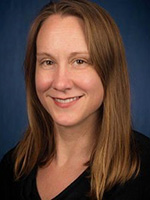
Shelie Miller (Faculty Advisor) is a professor at the University of Michigan School for Environment and Sustainability. Her research uses life-cycle assessment and scenario modeling to identify environmental problems before they occur. Miller’s research group works on a variety of energy-related topics, including the energy-water nexus, bioenergy, refrigeration in the food system, and autonomous vehicles.
Modeling Rainforest Carbon Cycling
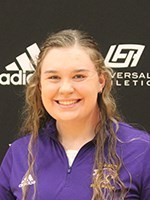
Anneke van Oosterom (Student Fellow) is a sophomore double majoring in biology and data science at St. Catherine University. She is currently involved with the biology department at St. Kate’s through the Biology Club and as a microbiology lab prep assistant. Through the fellowship she is creating a systems model using the Insight Maker modeling tool to demonstrate carbon cycling in tropical rainforests for Ann Russell’s forthcoming case Healing the Scars: Tropical Rainforest Carbon Cycling (developed through the OCELOTS network for tropical ecology).
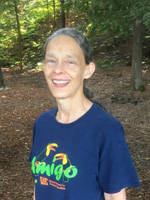
Ann Russell (Faculty Advisor) is a terrestrial ecosystems ecologist at Iowa State University, with special expertise in the biogeochemistry of tropical and managed ecosystems. Her research addresses links between traits of plant species and ecosystem processes, focusing on species and management effects on belowground processes, and subsequent implications for human impacts on soil fertility and carbon sequestration. Her research is designed to enhance our understanding of human impacts on the biosphere, improve biogeochemical models, and help guide selection of species for sustainable management of agroecosystems.
Scenario Planning for the Rouge River
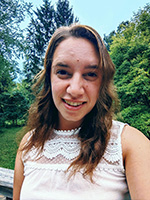
Julie Arbit (Student Fellow) is in her final semester as an environmental policy and planning student within the School for Environment and Sustainability at the University of Michigan (UM). She works as a research associate for the Center for Social Solutions at UM, where her main project focuses on equity in flood risk, response, and recovery. Julie is using ArcGis Online and Python to create scenario planning tools for the case The Rouge River: Redlining, Riverbanks, and Restoration in Metro Detroit.
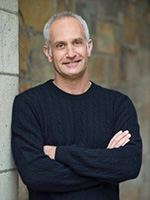
Perrin Selcer (Faculty Advisor) is an associate professor and director of undergraduate studies at the University of Michigan Department of History. He works at the intersection of environmental history, history of science, and international relations.
Accessible Data Science Tools for Water Utilities

Thien Nguyen (Student Fellow) is a second-year computer science undergraduate and sustainability enthusiast at the University of Minnesota, Twin Cities (UMN). He has previously worked with UMN’s Institute on the Environment, writing geospatial analysis algorithms in Google Earth Engine to observe soil degradation in Senegal’s Peanut Basin. Thien is working with PhD student Matt Vedrin to create tools for a PIT-UN funded collaboration working to help classrooms, communities, and workforces confront challenges in the monitoring and improvement of drinking water distribution systems.
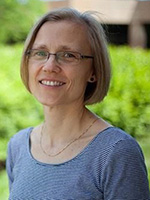
Lutgarde Raskin (Faculty Advisor) is a professor at the University of Michigan School for Civil & Environmental Engineering. She works to rethink engineered systems to better harness the power of microorganisms to treat water and recover resources from waste streams. Dr. Raskin and her team work to understand and improve various aspects of the engineered water cycle microbiome to improve human health using sustainable design approaches, with a focus on biofiltration, disinfection, distribution, and building plumbing biostability.
Get involved
This work was supported by the National Science Foundation through the MBDH Community Development and Engagement (CDE) Program.
Contact the Midwest Big Data Innovation Hub if you’re aware of other people or projects we should profile here, or to participate in any of our community-led Priority Areas. The MBDH has a variety of ways to get involved with our community and activities.
The Midwest Big Data Innovation Hub is an NSF-funded partnership of the University of Illinois at Urbana-Champaign, Indiana University, Iowa State University, the University of Michigan, the University of Minnesota, and the University of North Dakota, and is focused on developing collaborations in the 12-state Midwest region. Learn more about the national NSF Big Data Hubs community.
